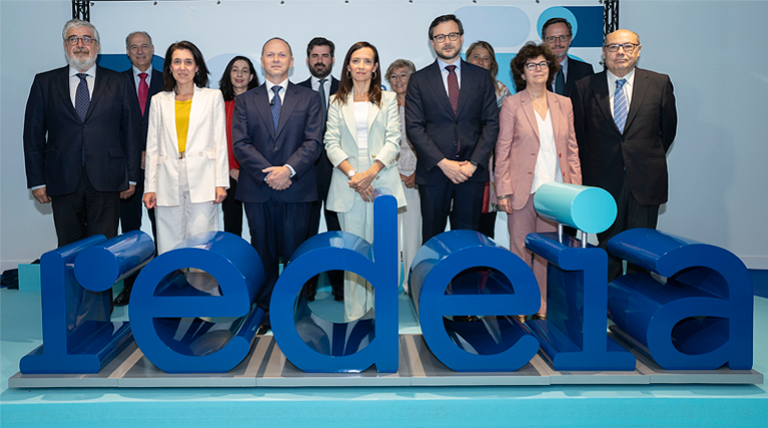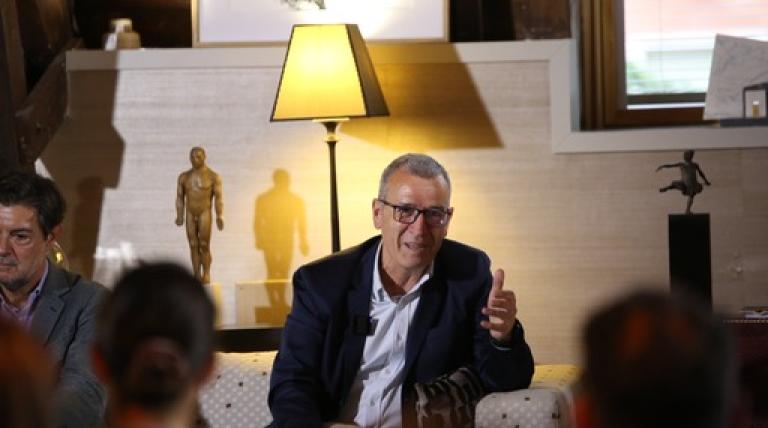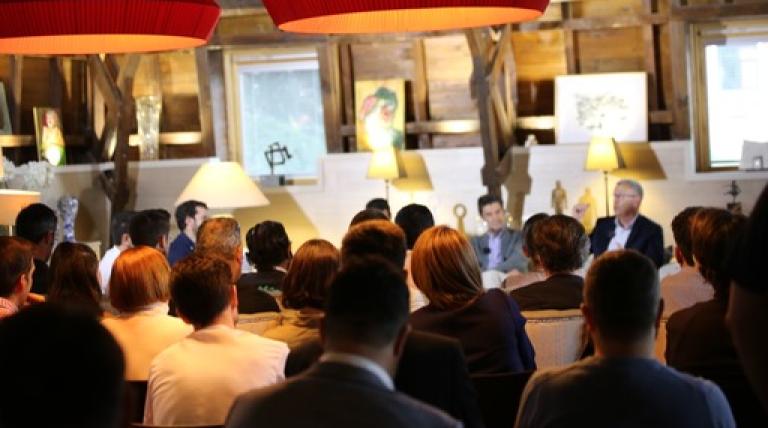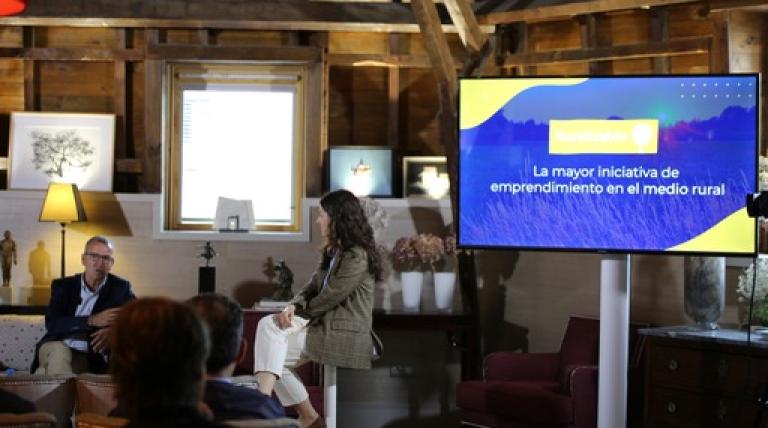We are a global operator of essential infrastructure
- The rural entrepreneurship support platform promoted by Redeia forms a panel comprising the government, companies, and small entrepreneurs to discuss the future of rural innovation.
- The Secretary General for the Demographic Challenge emphasises the need to improve rural connectivity to counteract depopulation.
Ruralizable, the biggest rural entrepreneurship initiative in Spain, recently gathered representatives from the central government, large companies, and small entrepreneurs to discuss the situation of rural innovation today and its potential for the future. Over 50 stakeholders from the Spanish countryside attended the conference at the Fundación Pons offices in Madrid because they were interested in hearing the panellists' proposals.
Among them was Paco Boya, the current Secretary General for the Demographic Challenge in the Spanish Government. In his presentation, Boya highlighted that it is essential to implement a robust communication infrastructure in order to reverse the existing 'doughnut' model in our country, where 80% of the population is concentrated in large cities and along the coast, leaving a vast depopulated expanse in the centre. This necessity encompasses not only roadways, but also telecommunications. By the end of 2023, 95% of the territory will be connected to broadband, both through optical fibre and satellites, thanks to Hispasat.
Boya further emphasised the importance of services that align with 21st-century European standards. Lastly, welcoming communities that provide the chance to enrich the lives of people, particularly for women and young people—the minority groups in the area—are of significant importance. This requires the presence of an appropriate leisure and cultural offer, which may consist partly of digital platforms, but also of physical environments that promote interpersonal interactions, the exchange of ideas, and the generation of opportunities.
Juan Ávila, the Social Innovation Manager at Redeia, the company behind Ruralizable, exposed their commitment to rural areas. 'Our main company, Red Eléctrica, manages the country's electricity transmission grid, which is present in the surrounding areas of over 3,000 municipalities. Our aim is to be good neighbours, which means helping, contributing, and developing. This is why Redeia supports regional initiatives that contribute to its own development, launching projects like Ruralizable.'
Pablo Redondo, Agro Category Manager at Calidad Pascual, reviewed the history of innovative ideas that the dairy company has been promoting in the territory since its foundation. Their efforts have made them pioneers by using Tetra Brik packaging, crafting dairy-fruit drinks, and, in recent years, introducing soy-based beverages. All of this was achieved while fostering a 100% local production network.
Manu Gómez, director of the Tres Valles mountain race in the Sierra de Francia, shared his story of success and decline. Since its creation in 2015, Tres Valles has represented a paradigm shift in this kind of race, combining sports and leisure activities to have a 365-day impact on the territory. Despite consistently selling out registrations each year, the race has never received support from the Junta de Castilla y León and the Council of Salamanca, institutions allegedly in charge of local development. Due to the lack of financial resources for a non-profit project, the organisers decided to stop hosting it, leaving the Sierra de Francia a little less inviting. They hope their example promotes the creation of other initiatives in the region that, this time, receive support from administrations and large companies convinced of the need for innovation in order to safeguard the future of our rural communities.

















